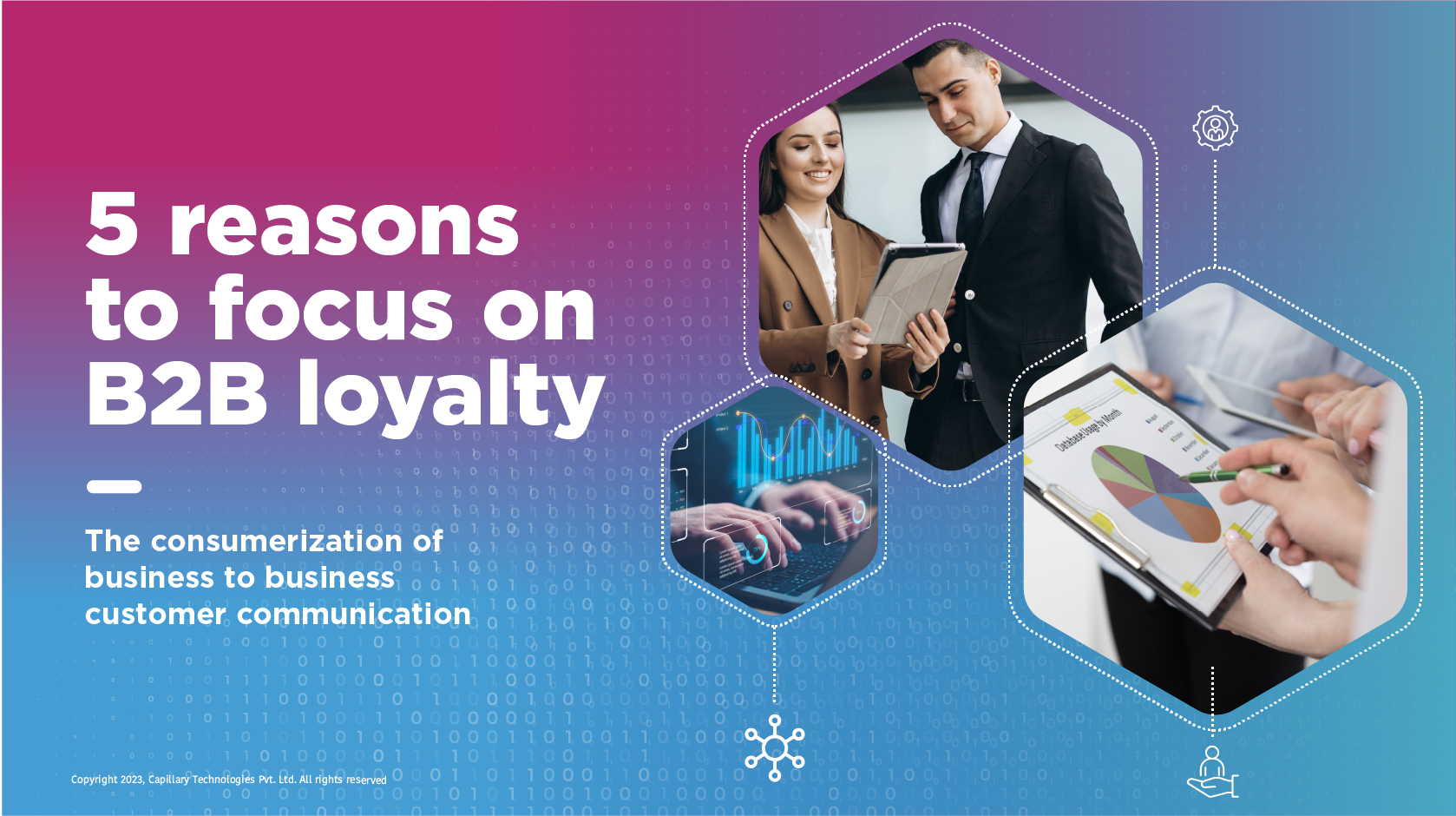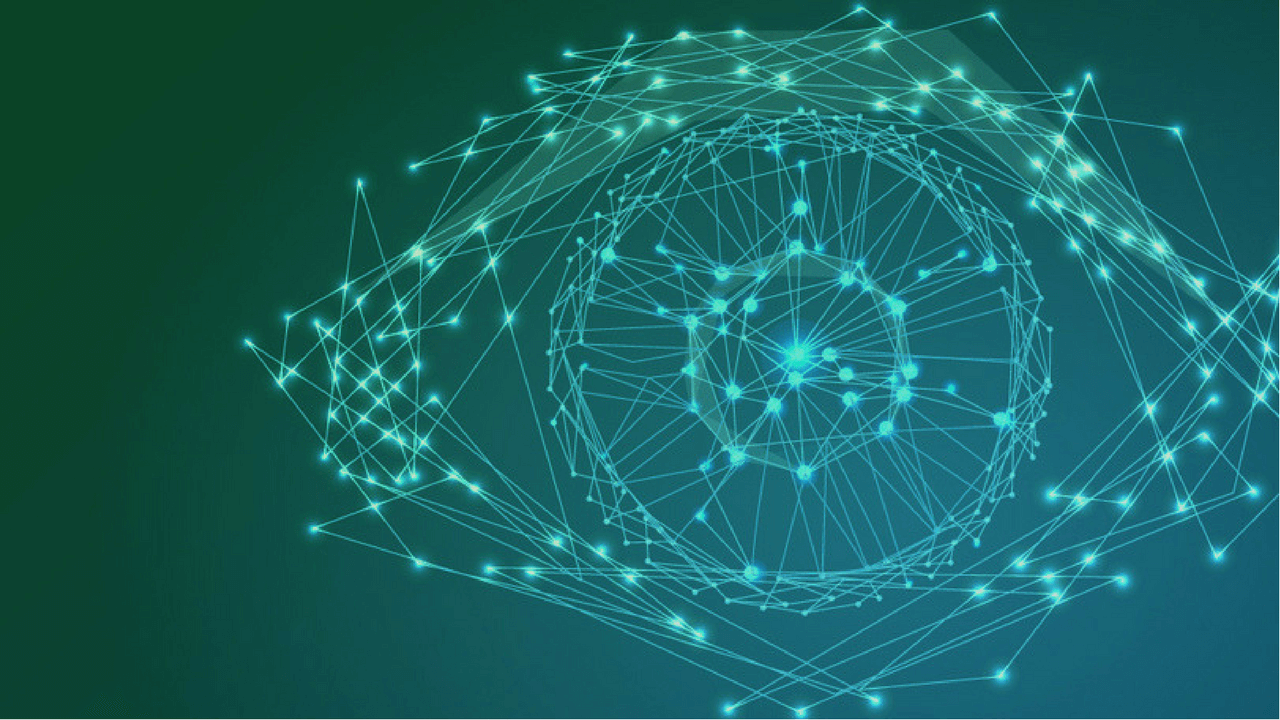- Design industry shaping loyalty programs
- Integrate easily and go live quicker
- Deliver hyper-personalized consumer experiences
Capillary acquires US-based Brierley+Partners Read more >
Capillary named a Leader in The Forrester Wave™: Loyalty Technology Solutions, Q1 2023 Report Read more >

The B2B landscape is increasingly becoming like how B2C operates. Advances and adoption in digital mediums have shown that the B2B sector is starting to shift towards digital platforms and strategies. While traditional mediums remain relevant, digital options are becoming more prevalent and meeting a B2B customers’ digital expectations will become a top priority. In such a scenario, with high customer acquisition costs, it is critical to have B2B loyalty programs to retain and expand on existing client/distributor accounts.
The rapid emergence and evolution of e-commerce have led to an increasing number of channels that are now available to B2B buyers. The B2B e-commerce market has gained immense traction during the pandemic, with shifting consumer behaviors and evolving preferences, combined with a blooming technological arena. Customer preferences dictate much of this, with a new Avionos report relaying that 90% of the users will shift to a competitor if the supplier does not provide quality of use and access in the digital channel as well, hence raising the problem of customer retention.
As reported by McKinsey, nearly 65 percent of B2B companies are executing sales transactions online, as opposed to conventional wisdom about B2B business models; surpassing in-person sales and accelerating the rate of digital adoption at the same time. Some trends that have emerged to dominate the 2023 B2B landscape are the following:
At Capillary, we work with 250+ enterprise brands in 30+ countries. One of our clients in SEA is a large paints & coatings company that wanted to build a sense of community amongst its distributor network. They used Capillary’s B2B loyalty capabilities to gamify the paint buying process which led to higher engagement among the target market.
The gamification was designed through the insights generated from the customer data platform. Such personalization is common in the B2C segment but it also yielded promising results to generate B2B loyalty.
At a broader level, artificial intelligence and machine learning technologies are becoming more advanced, enabling B2B companies to create personalized experiences for their customers. This includes using AI to recommend products, personalize content, and create customized pricing and promotions. Further, customer analytics is being run on the basis of large troves of information collected through direct or third-party purposes, to contribute to various aspects of hyper-personalization in improving the B2B commerce and loyalty experience.
B2B eCommerce companies are realizing that customers want to engage with them on multiple channels, including social media, email, chat, and phone. In 2023, we can expect to see more B2B companies investing in omnichannel customer engagement strategies that enable them to engage with customers across multiple touchpoints. A cohesive customer experience requires a comprehensive understanding of user needs, behaviours, preferences and hence involves sophisticated software to create actionable analytical points. This trend again pushes the envelope for why B2B brands should also focus on loyalty as a marketing objective to focus on.
“Most brands spend about 90% of marketing spends on acquiring new customer and only about 10% on loyalty while 70% of the growth is coming from loyal customers!” shared Sameer Garde, CEO of Capillary. In such a scenario, it makes absolute sense to focus on Loyalty.
In a world of short attention spans and shifting brand allegiances, paying attention to honing the art of retaining customers is truly a difficult one. But this is also what makes it so important. According to research published by Frederick Reichheld of Bain & Company, a mere 5% increase in customer retention produces more than 25% increase profit margins. With the global economic downturn, focus is shifting towards retaining customers for brands and this trend will definitely have more brands beginning or doubling down on their B2B loyalty programs.
With increasing concerns about the environment and social responsibility, B2B eCommerce companies are expected to focus more on sustainability and ethical practices. This includes creating sustainable products, reducing waste, and improving their supply chain practices to reduce their environmental impact. Data-driven decision making can also aid in making more efficient supply-chains and bringing down energy consumption. The American Marketing Association-New York’s Future of Marketing study showcased that environmental sustainability branding is a priority for 24% of B2B buyers. In an increasingly environmentally conscious market, taking measures to create greener options in packaging, shipping and emission strategies help popularize the business’s commitment to sustainability practices. And this will be a key data point while designing B2B loyalty programs. (Why do you need to consider Carbon Offsets as a loyalty tool?)
B2B customers are increasingly expecting an experience like B2C products. Online catalogs, real-time inventory-tracking, pricing and discount management, automated order processing, video tutorials are some of the assets one needs to have in place in order to serve a B2B customer. You need to build processes that are self-servicing in nature but also deliver a modern easy to use customer experience.
Extending this to loyalty programs- gamification, cart promotions and other such tactics are great ways to build loyalty amongst your distributors, sales partners or other such B2B clients.
This can lead to increased sales, improved customer retention, and reduced costs associated with order processing and customer service. Overall, B2B loyalty is a valuable tool for businesses looking to streamline their operations and improve their customer experience.

June 16, 2017 | 4 Min Read
On Friday, May 26th more than 50 CxOs from over 40 brands ca

May 23, 2017 | 4 Min Read
“The next phase of the technological revolution in the cus

January 18, 2018 | 4 Min Read
n an intensely competitive retail environment where change i